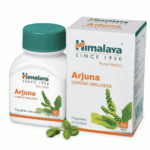Lymphatic system
Ayurvedic view of the lymphatic system
The lymphatic system is important and constantly functioning, your entire body’s drainage system plays an important role in removing toxins, balancing fluids, and maintaining the immune system. Lymph is also involved in all major organs of the body, as well as the endocrine and cardiovascular systems. The lymphatic system helps fight infections, regulate blood pressure, breathe.
How can an Ayurvedic doctor help with disorders of the lymphatic system?
In Ayurvedic medicine, Rasa dhatu refers to the body’s basic waters (lymphatic fluid and plasma). Rasa dhatu is governed by the water element and Kapha Dosha balance in the body. Healthy rasa dhatu is clear, works properly, and flows freely without stagnation, and the immune and waste removal systems work optimally. Ayurveda believes that one should start with a detoxification plan, gradually adding exercise, cleansing therapies as Lymphatic drainage massage is an excellent way to start a body cleaning following with Ayurvedic medicines depending on the individual’s disease problem. The Ayurvedic doctor develops a plan for each individual depending on the course of the disease.
Ayurvedic advice for the health of the lymphatic system:
The main indicators of normal lymph function in the body – skin without spots and moist, eyes are clear, the body is not overflowing with mucus, and the color of urine is lighter.
The lymphatic system is connected to the blood. Diseases of the lymphatic system are a warning about the need to reorient to the most important thing – love and joy. All emotional waste is kept inside!
The lymphatic system is connected to the blood. Diseases of the lymphatic system are a warning about the need to reorient to the most important thing – love and joy. All emotional waste is kept inside!
Which parts of the body are affected in the case of disorders of the lymphatic system:
All body tissues, cells, spleen, kidney, lungs, hearts, urinary system

What Causes lymphatic system?
The lymphatic system, a crucial component of the circulatory and immune systems, is responsible for maintaining fluid balance, filtering waste, and supporting immune function. It consists of lymph nodes, vessels, and organs such as the spleen and thymus. The primary cause of the lymphatic system is the circulation of lymph, a colorless fluid containing white blood cells, through these vessels and nodes. Lymphatic vessels collect excess fluid from tissues, filter it through lymph nodes to remove impurities and pathogens, and then return it to the bloodstream. This intricate network plays a vital role in supporting the body’s defense against infections and maintaining overall fluid equilibrium.
Ways to Prevent disorders of the lymphatic system According to Ayurveda
Balanced Diet: Adopt an Ayurvedic diet that supports lymphatic health, incorporating foods that are light, easily digestible, and rich in natural antioxidants.
Hydration: Ensure proper hydration with warm water to help flush toxins and maintain the fluid balance within the lymphatic system.
Herbal Support: Integrate Ayurvedic herbs like turmeric, neem, and manjistha known for their anti-inflammatory and lymphatic-supportive properties.
Regular Exercise: Engage in regular, moderate exercise to promote lymphatic circulation, which helps prevent stagnation and supports overall system function.
Lymphatic Massage: Consider Ayurvedic practices like Abhyanga (self-massage) to stimulate lymphatic flow and enhance the body’s natural detoxification processes.
What’s a List of disorders of the lymphatic system?
Some Common disorders of the lymphatic system Include:
Lymphedema
Lymphocytosis
Hodgkin's Disease
Edema
How Ayurveda Can Help from disorders of the lymphatic system?
Ayurveda offers a holistic approach to addressing disorders of the lymphatic system by focusing on restoring balance and promoting overall well-being. Through personalized dietary recommendations, herbal formulations, and lifestyle adjustments, Ayurvedic therapies aim to alleviate stagnation in the lymphatic system. Specific herbs like turmeric and neem, known for their anti-inflammatory properties, are employed to support lymphatic function and reduce swelling. Practices such as Abhyanga (self-massage) and regular exercise are recommended to enhance lymphatic circulation and aid in the elimination of toxins. Ayurvedic interventions target the root causes of lymphatic disorders, emphasizing the body’s innate healing capacities to bring about sustained relief and improved lymphatic health. Consulting with an Ayurvedic practitioner ensures a tailored approach for individualized care
Emotions that Block:
- any emotions
- fear
- resentment
- anger
- attachment
- Knees
- Ankles
- Shoulders
- Hip Joints
- Finger Bones
- Whole Human Skeletal System
Why Choose Ayurveda for disorders of the lymphatic system?
Holistic Care: Ayurveda offers a holistic approach to lymphatic disorders, considering physical, mental, and spiritual aspects.
Personalization: Tailored treatments based on individual constitutions ensure precise and effective care.
Natural Healing: Ayurvedic methods emphasize natural remedies, herbs, and lifestyle adjustments for innate healing.
Dosha Balance: Addressing dosha imbalances aims to restore overall harmony, benefiting lymphatic system health.
Preventive Focus: Ayurveda guides preventive measures through healthy lifestyles, minimizing the risk of lymphatic disorders.

Ayurvedic Wellness for lymphatic system?
Ayurvedic wellness for the lymphatic system encompasses a holistic approach focused on maintaining balance and supporting optimal function. Through tailored dietary recommendations that prioritize digestive health, the integration of detoxifying herbs like triphala, and engaging in regular exercises such as yoga to stimulate lymphatic circulation, Ayurveda promotes overall well-being. Hydration with warm water and specific Ayurvedic therapies like Abhyanga and Panchakarma further contribute to lymphatic health by facilitating the elimination of toxins. This comprehensive approach not only addresses current concerns but also serves as a preventive measure against potential lymphatic disorders, emphasizing the body’s innate ability to heal and restore balance. Seeking guidance from an Ayurvedic practitioner ensures personalized recommendations aligned with individual needs and constitutions.
Meet the Ayurvedic Experts

- 5.0
Dr Sujal Torgal Patil
- EXP : 12 Years
– Bachelor of Ayurvedic Medicine & Surgery – Post graduate

- 5.0
Dr. HARSHA JOY
- EXP : 5 Years
Dr. Harsha Joy is a bona fide Ayurvedic Doctor presently

- 5.0
Dr. Sandeep Madaan
- EXP : 18 Years
I am Medicine Doctor (M.D.) Ayurveda, Chief Ayurveda Consultant, Aastha

- 5.0
Dr. Amol Patil
- EXP : 15 Years
Clinical experience : 15 Years Teaching experience : 15 years
Ready to embark on your Ayurvedic journey?
Click “Book a consultation” to connect with an Ayurvedic expert today.
Ayurvedic Products that Helps in Autoimmune Disease
Explaining the Ayurvedic perspective on balancing Doshas and using herbs and therapies for joint health.
Discussing the potential of Ayurvedic interventions in managing and alleviating symptoms of chronic joint diseases.
Providing insights into Ayurvedic dietary guidelines based on individual Doshas to support joint health.
Exploring herbs like ashwagandha, guggul, and turmeric known for their anti-inflammatory and joint-supportive properties.
Discussing daily routines, exercises, and practices like Abhyanga (oil massage) to promote overall joint health in line with Ayurvedic principles.






